#duc d'orléans
Text
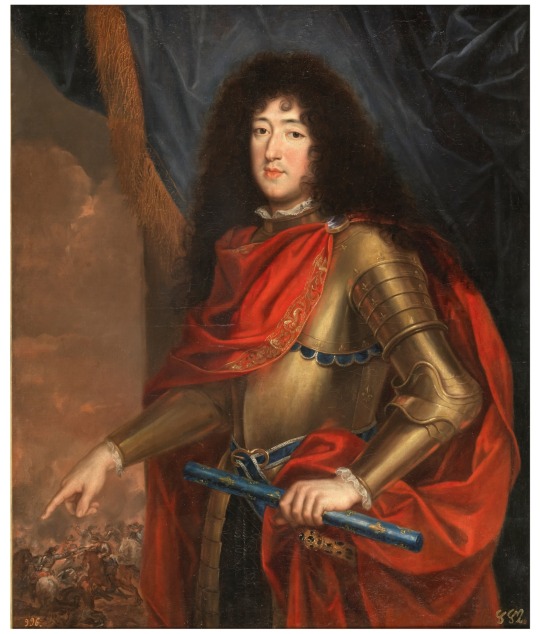
Philippe I, Duke of Orléans. Circle of Pierre Mignard.
#royaume de france#maison de bourbon#bourbon orleans#philippe de france#duc d'anjou#duc d'orléans#monsieur#vive le duc#versailles#pierre mignard#in armour#museo del prado#maison d'orléans
15 notes
·
View notes
Text
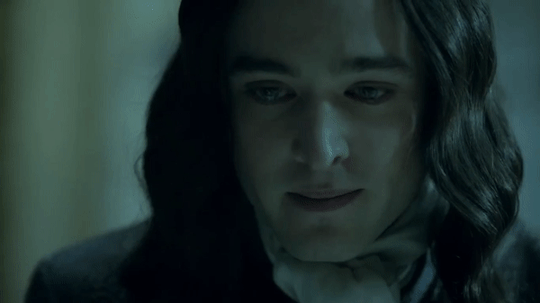

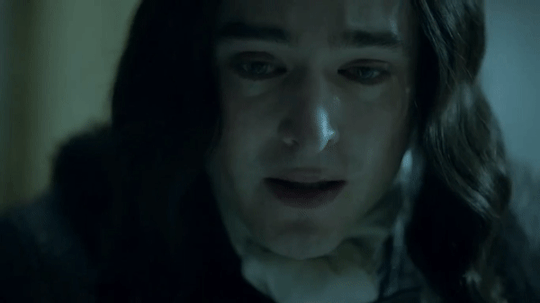
#versailles#versailles gif#philippe d'orléans#philippe d'orléans gif#philippe of orleans#philippe of orleans gif#duc d'orléans#duke of orleans#alexander vlahos#alexander vlahos gif
45 notes
·
View notes
Text
The (early) Relationship between Georges de La Fayette and Louis Philippe I
Lately I have gone back to “the roots” so to speak – in other words, I have read the French version of La Fayette’s memoirs (and again realized that the first English version I read was somewhat strange.)
While reading, I found this passage in the fifth volume:
Je ne con les ducs d'Angoulême et de Berry; mais la manière dont le duc d'Orléans demanda de mes nouvelles à mon fils, qu'il avait vu aux États - Unis , me fit un devoir d'aller chez lui
My translation:
I don't know the dukes of Angoulême und de Berry; but the manner in which the Duc d’Orléans inquired after my son, whom he had seen in the United States, made it my duty to go to him.
Most of you are probably aware of the fact that the relationship between the La Fayette’s and the d’Orléans’ often was … interesting to say the least. The Marquis de La Fayette and the Ducs father, Louis Philippe II, Duke of Orléans or “Philippe Égalité” really did not get along during the French Revolution. In that context it is quite interesting to see how their sons connected.
During the course of the French Revolution Louis Philippe II was executed via the guillotine and his sons fled the country. His oldest son, the new Duc d’Orléans, the one mentioned in the quote above, lived in Switzerland before moving to England and later spending two years in North America, mostly in Philadelphia. In April of 1797 he and two of his brother visited Mount Vernon in Virginia before embarking on a three-month trip of the American backcountry. By October they had concluded their trip and George Washington noted in his diary for October 30, 1797:
30. Wind brisk from No. Wt. & cold. Mer. at 54. Doctr. Stuart went away after breakfast. Mr. Cottineau & Lady, Mr. Rosseau & Lady, the Visct. D’Orleans, & Mr. De Colbert came to Dinner & returned to Alexa. afterwards. A Mr. Stockton from N. Jerseys came in the afternoon.
“[Diary entry: 30 October 1797],” Founders Online, National Archives, [Original source: The Diaries of George Washington, vol. 6, 1 January 1790 – 13 December 1799, ed. Donald Jackson and Dorothy Twohig. Charlottesville: University Press of Virginia, 1979, pp. 265–266.] (09/29/2022)
By late 1797, Georges and Felix Frestel had begun their preparations to return to Europe but Georges would not be reunited with his family prior to February of 1798. I am therefor not quite sure if Georges and the Duc d’Orléans met during one of the described instances or elsewhere. Georges certainly had spent his fair share of time in Philadelphia as well.
One way or the other, the two young Frenchman in exile met and seemingly got along quite nicely. I have sadly never found a statement by Georges himself on the meeting or their subsequent relationship.
#marquis de lafayette#la fayette#american history#french history#french revolution#history#1797#george washington#georges washington de lafayette#louis philippe#louis philippe i#duc d'orléans#founders online
13 notes
·
View notes
Text
23 / 08 / 2022
🇫🇷 FRANÇAIS / FRENCH 🇫🇷
Aujourd'hui je lance une nouvelle série d'articles. Après RECOMMANDATION DE FILM / SÉRIE TÉLÉVISÉE, HOMME DU JOUR, et PERSONNAGE DU JOUR, voici le premier numéro de COUPLE GAY DU JOUR.
Je suis gay donc forcément je vais parler de couple gay de personnage fictifs ou pas, mais plutôt des personnages issus de films et de séries télévisées (et peut-être de livres). Les deux hommes formant le couple gay dont je parlerais ne seront pas forcément gay eux-mêmes (par exemple il peut y avoir un gay en couple avec un homme bisexuel), mais l'idée est de parler de couples de fictions que j'apprécie, qui m'inspire et me font rêver. Peut-être que cela vous donnera envie de voir les films et les séries télévisées dont ils sont issus, comme lorsque je vous recommande des séries TV ou des films.
Les couples dont je vais parler ne sont pas apparaître par ordre de préférence.
COUPLE GAY DU JOUR #1 : MONCHEVY
Philippe d'Orléans (Alexander VLAHOS) et le Chevalier de Lorraine (Evan WILLIAMS) - série télévisée Versailles (2015 - 2018)

Phillipe d'Orléans et le Chevalier de Lorraine sont deux personnages principaux de la série Versailles. Composée de 3 saisons, la série télévisée Versailles raconte une partie du très long règne de Louis XIV de France (joué par Georges Blagden). À chaque saison, il y a un antagoniste différent qui complote contre le Roi, et chaque saison couvre une période différente du règne de Louis XIV.
On suit la vie à la Cour, et tous les personnages tournent autour de Louis XIV. Bien rythmée, très jolie à régarder car les costumes et les décors sont plutôt fidèles historiquement, la série invente plusieurs personnages intéressants à suivre. En revanche, pour ce qui est des personnages historiques, certains sont traités de manière caricaturales, voir totalement différente de comment ils étaient en réalité.
Pourtant, je pourrais parler longuement des choses fausses que la série invente, mais je préfère me consacrer à l'un des points positifs de la série : le couple formé par Philippe d'Orléans et le Chevalier de Lorraine. C'est le seul couple gay de la série mais ils apparaissent dans tous les épisodes, donc ils sont très présents et importants.
Lorsque commence la série, les deux hommes sont censés se connaître depuis au moins une dizaine d'années et sont déjà amoureux. Pour une fois, voilà un couple gay qui se connaît et qui s'aime, l'on n'a pas affaire à des scènes où ils apprennent à se connaître ou à se séduire. Alexander Vlahos interprète Monsieur le Duc Philippe d'Orléans, frère cadet du Roi Louis XIV. Evan Williams joue le rôle du Chevalier Philippe de Lorraine. Même s'ils portent le même prénom, le Chevalier est désigné sous le nom de "Chevalier" pour qu'on le reconnaisse.
Ces deux hommes sont des personnages historiques, en tout cas les personnages de la série sont inspirés de deux personnes ayant réellement existés. Philippe d'Orléans (né en 1640, mort en 1701) est le fils cadet de Louis XIII de France et Anne d'Autriche, il est donc le frère de Louis XIV. Le chevalier Philippe de Lorraine (1643 - 1702) est un noble français, il a rencontré le Prince Philippe vers 1658. La série commence vers 1668, ils se connaissent donc depuis une dizaine d'années : Philippe d'Orléans est censé avoir 27 ans, le Chevalier en a 24.
Dans la saison 1, le Chevalier complote pour faire de son amant Philippe le nouveau Roi de France. Il s'allie à d'autres nobles afin de destituer le Roi, et sa situation devient très compliqué. De son côté, le Duc d'Orléans (âgé de 28 à 30 ans) fait face à la jalousie qu'il éprouve pour le Roi.
Dans la saison 2, le Chevalier de Lorraine revient d'exil et se retrouve mêlé à l'Affaire des Poisons : c'est un scandale retentissant dans les années 1670 car des nobles français ont été accusés de consommer des poisons achetés à des sorciers et des sorcières. Quant à Philippe d'Orléans (âgé de 30 à 40 ans à peu près), il a enfin de plus en plus d'importance politique à la Cour.
Enfin, dans la troisième et dernière saison, Philippe (qui a entre 40 et 44 ans) va enquêter sur l'identité de l'homme au masque de fer, et le Chevalier de Lorraine se rapproche d'une fictive noble protestante à une période où le Roi fait arrêter les protestants de la cour s'ils ne se convertissent pas au catholicisme. Durant la saison 3, le couple s'éloigne mais il finit par se rapprocher, pour notre plus grand plaisir.
J'ai écrit l'âge qu'est censé avoir Philippe d'Orléans à chaque saison sauf qu'il n'y a aucune date donné dans la série, et les personnages vieillissent peu.
Dans la série télévisée comme dans la réalité historique, le Chevalier de Lorraine a eu de nombreux problèmes avec les deux épouses de Monsieur le Duc d'Orléans. Dans la première saison, il fait tout pour rendre malheureuse Henriette d'Angleterre, cousine et première épouse de Philippe d'Orléans. Dans la deuxième saison, il recommence avec la nouvelle épouse du Duc, Élisabeth-Charlotte de Bavière (surnommé Liselotte).
Pourtant, contrairement à la réalité historique, le Chevalier et Liselotte finissent par s'entendre plutôt rapidement, et deviennent même amis. Dans la vraie vie, ils ont attendus quatre ans avant la mort du duc pour enfin faire la paix. Le trio formé par le Duc d'Orléans, la Duchesse et le Chevalier est vraiment très drôle et très ambigu.
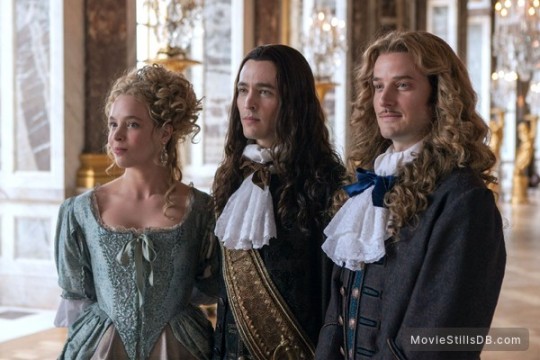
Le Chevalier de Lorraine est un grand homme blond musclé et le Duc est brun. Ils sont très différents surtout au niveau de la personnalité et de l'attitude.
Monsieur le Duc Philippe d'Orléans est un prince qui aime se travestir en femme, même si cela n'arrive qu'à peu de reprises dans la série télévisée. Il est censé avoir été élevé en fille par sa mère dans l'objectif de le rendre faible et soumis. Effectivement, il passait son temps à se consacrer à la mode et aux frivolités. Ce qui est bien dans la série Versailles c'est que la complexité de Philippe d'Orléans est montré. En effet, il était certes efféminé et frivole, passant beaucoup de temps à danser et à coucher avec ses amants, mais il était aussi un grand mécène, et surtout un valeureux guerrier qui a remporté plusieurs batailles au point de faire de l'ombre à son frère le Roi.
Dans la série, ce qui le rend complexe et intéressant c'est sa relation à son frère, mais revenons en à son couple avec le Chevalier. Tous deux sont très proches l'un de l'autre, mais c'est surtout le Chevalier qui se montre jaloux. Il n'est pas marié donc il n'aime pas voir le Duc passer du temps avec ses femmes. Il se montre très protecteur avec son amant, et complote pour qu'il soit Roi. Philippe était en effet plus populaire que le Roi car il passait plus de temps à Paris qu'à Versailles. Le Chevalier est un homme exubérant, qui aime se montrer et affiche sa supériorité. Il est manipulateur et arrogant, mais il cache une envie d'être aimé pour lui.
Ainsi, ce qui fait la beauté de ce couple c'est qu'ils sont vraiment fait l'un pour l'autre. Le temps et la politique les éloigne parfois mais ils finissent par se retrouver car ils s'aiment. Dans la réalité historique, certains historiens pensent que le Duc d'Orléans était sincèrement amoureux du Chevalier de Lorraine, mais que lui n'était pas amoureux et se servait de lui pour obtenir des faveurs. Il était pourtant un guerrier dont le roi se servait pour manipuler son propre frère.
Dans la série, le Duc Philippe évolue, car il est d'abord dominé et manipulé par le Chevalier, et il finit par ne plus dépendre de son amant.
Ce qui est bien, c'est que c'est un couple qui aurait pu exister de nos jours. Ils sont gay mais il leur arrive de coucher avec des femmes, ils sont ambitieux et mènent une carrière chacun de leur côté mais parfois en s'aidant l'un l'autre. Ils se disputent, couchent avec d'autres personnes, mais se réunissent.
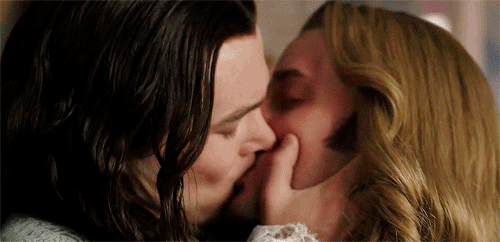
Le couple formé par le Duc d'Orléans et le Chevalier de Lorraine a marqué l'histoire de l'homosexualité car ils font parti des rares nobles à avoir pu afficher leur sexualité sans être puni par la loi ou le regard de la société. À la cour Française, il fallait être noble pour pouvoir avoir une sexualité libre, malgré le poids de l'Église.
Le véritable chevalier de Lorraine était d'ailleurs bien plus cruel que son homologue de fiction : il aurait assassiné un jeune marchand de gaufres qui aurait refusé de coucher avec lui. Plus tard, il a créé une confrérie rassemblant des nobles homosexuels dont l'emblème était un homme qui écrase une femme. Le Chevalier et les autres amants du duc d'Orléans ont violés un jeune noble gay, le Duc de Vermandois (fils de Louis XIV et de sa maîtresse Louise de La Vallière).
Bref, la vie à la Cour était sans doute cruelle. Le Chevalier de Lorraine était donc réputé pour être un homme magnifiquement beau mais prêt à tout pour avoir de l'argent et des titres. Dans la série, il est attachant malgré son arrogance, et est l'un des personnages les plus drôles (il fait plein de blagues).
Le Duc d'Orléans et le Chevalier de Lorraine partagent le même prénom, mais ils se comprennent vraiment, ont des désirs communs. Ils sont tous les deux de beaux jeunes hommes et sont attirés par le corps de l'autre, ils ont d'ailleurs de nombreuses scènes de sexe très excitantes et explicites. Il semblerait que le Duc était passif avec le Chevalier mais parfois actif avec ses autres amants. À la fin de sa vie, le Chevalier a conservé les faveurs du Duc d'Orléans en lui fournissant de beaux jeunes hommes avec qui coucher. Pourtant, ils ont été en couple pendant longtemps (une quarantaine d'années), et la série télévisée montrent qu'ils ont été heureux ensemble.
Ils s'embrassent à presque tous les épisodes (quand ils sont en couple, pas quand ils sont censés se disputer). Je vous met d'ailleurs en lien une chaîne YouTube qui a compilé les moments où apparait le couple MonChevy (surnom qui est une contraction de Monsieur et de Chevalier, les titres des deux Philippe).
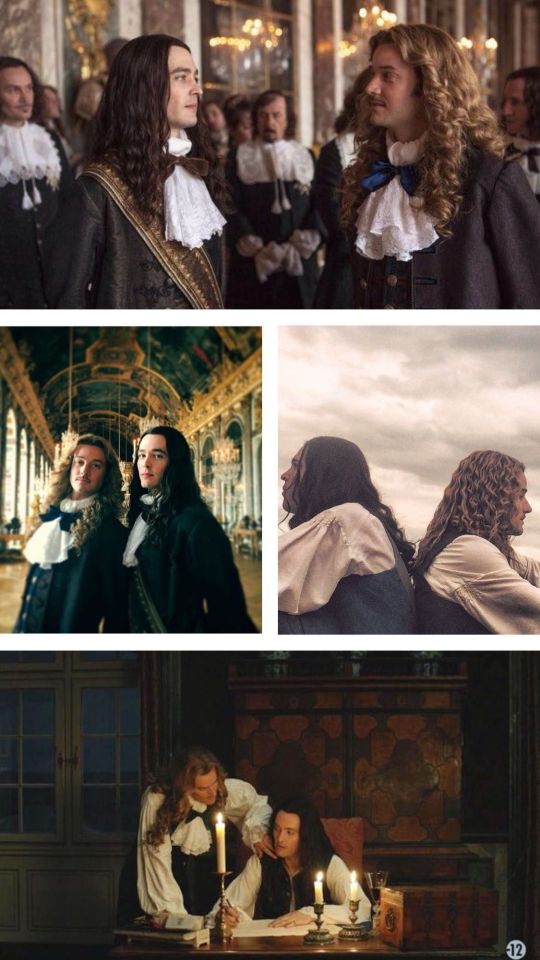
Ils portent de sublimes costumes et de magnifiques perruques, ils sont censés beaucoup aimer la mode, même si le Duc est moins coquet qu'il ne l'était dans la vraie vie.
Il y a plusieurs scènes absolument sublimes dans ce couple. La première qui me vient en tête c'est celle où le Duc et le Chevalier regardent le feu dans la cheminée après une dispute et le Chevalier pleure lorsqu'il dit qu'il préfère mourir plutôt que d'être détesté par l'homme qu'il aime. J'avais trouvé cela très beau de voir cet homme si confiant et dominant, qui protège son amant et se montre jaloux dès qu'il est avec un autre, confier ainsi ses sentiments avec sincérité.
Dans une autre scène, le couple est au Château de Saint-Cloud, demeure du Duc, et le Chevalier de Lorraine dit à Philippe d'Orléans : "Ton frère est peut-être le Soleil, mais toi, mon cher, tu es une étoile. Et si le soleil brille le jour, l'étoile éclaire nuit par sa brillance.".
Cette phrase est magnifique car on ressent l'admiration que le Chevalier éprouve pour son amant, qui est supérieur à lui en titre. Pourtant, Philippe aime obéir à son propre amant, comme s'il était sa femme. Je trouve cela très drôle et excitant.
Et puis, bien sûr, il y a la scène où ils se disent "Je T'aime" pour la première fois. D'habitude, je n'aime pas trop lorsque l'on en fait trop autour de la déclaration d'amour, mais ici je trouvais ça beau car ils savent qu'ils s'aiment, et ils en sont tellement conscients qu'ils n'ont jamais eu à se le dire, jusqu'à ce fameux moment qui est trop beau.
Monsieur et le Chevalier ne disent jamais qu'ils sont gay ou homosexuels (ces termes n'existaient pas au XVIIeme siècle) : ce sont juste des hommes, des personnes normales qui se trouvent être attirés par les hommes.
Enfin, pour terminer, les interprètes de MonChevy, Alexander Vlahos et Evan Williams, sont d'excellents acteurs. Ils sont aussi beau dans la vraie vie que dans la série. Ils sont devenus meilleurs amis dans la vraie vie, les voir aussi complices est trop mignon.

Ils sont d'ailleurs fier d'avoir joué un couple gay (car ils sont hétéros dans la vraie vie) et de l'avoir fait de manière naturelle. En effet, ils ont une vraie alchimie, notamment lors des scènes sexuelles ou de baisers.
J'espère qu'ils vont poursuivre leur carrière.
Voilà, j'espère que découvrir ce couple vous aura plu. Si vous le connaissiez, dites-le moi et j'espère que nous pourrons en discuter en commentaires. À bientôt pour de prochains couples gays 😘
☀️👑☀️👑☀️👑☀️👑☀️👑☀️👑☀️👑☀️👑
+++++++++++++++++++++++++++++++++++
🇺🇲🇬🇧 ENGLISH / ANGLAIS 🇬🇧🇺🇲
Today I am launching a new series of articles. After MOVIE/TV SERIES RECOMMENDATION, MAN OF THE DAY, and CHARACTER OF THE DAY, here is the first issue of GAY COUPLE OF THE DAY.
I am gay so inevitably I will talk about gay couples of fictional characters or not, but rather characters from films and television series (and perhaps books).
The two men forming the gay couple I will be talking about will not necessarily be gay themselves (for example there may be a gay couple with a bisexual man), but the idea is to talk about fictional couples that I appreciate, which inspires me and makes me dream. Maybe it will make you want to see the movies and TV shows they are from, like when I recommend TV shows or movies to you.
The couples I'm going to talk about aren't listed in order of preference.
🏳️🌈 GAY COUPLE OF THE DAY 🏳️🌈 #1 : MONCHEVY
Philippe of Orleans (Alexander VLAHOS) and Chevalier of Lorraine (Evan WILLIAMS) in the TV series Versailles (2015 - 2018)
Phillipe d'Orléans and the Chevalier de Lorraine are two main characters in the Versailles TV series. Composed of 3 seasons, the television series Versailles shows parts of the very long reign of Louis XIV of France (played by Georges Blagden). Each season has a different antagonist plotting against the King, and each season covers a different period of Louis XIV's reign.
We follow life at the Court, and all the characters revolve around Louis XIV. Well paced, very pretty to look at because the costumes and sets are rather historically faithful, the series invents several interesting characters to follow. On the other hand, with regard to historical figures, some are treated in a caricatural way, to see totally different from how they were in reality.
However, I could talk at length about the false things that the series invents, but I prefer to devote myself to one of the positive points of the series: the couple formed by Philippe d'Orléans and the Chevalier de Lorraine. They're the only gay couple on the show, but they appear in every episode, so they're very present.
When the series begins, the two men are supposed to have known each other for at least ten years and are already in love. For once, here is a gay couple who know each other and who love each other, we are not dealing with scenes where they get to know each other or seduce each other.
Alexander Vlahos plays Monsieur le Duc Philippe d'Orléans, younger brother of King Louis XIV. Evan Williams plays the role of Chevalier Philippe de Lorraine. Even if they have the same first name, the Chevalier (which mean "Knight" in English) is referred to as "Chevalier de Lorraine" for recognition.
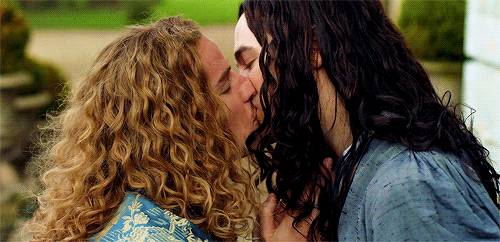
These two men are historical figures, in any case the characters of the series are inspired by two people who really existed. Philippe d'Orléans (born in 1640, died in 1701) is the youngest son of Louis XIII of France and Anne of Austria, he is therefore the brother of Louis XIV. Chevalier Philippe de Lorraine (1643 - 1702) is a French nobleman, he met Prince Philippe around 1658. The series begins around 1668, so they have known each other for about ten years and Philippe d'Orléans is supposed to be 27 years old, the Chevalier Philippe de Lorraine is 24.
In Season 1, the Knight plots to make his lover Philippe the new King of France. He joins forces with other nobles to depose the King, and his situation becomes very complicated. For his part, the Duke of Orleans (aged 28 to 30) faces the jealousy he feels for the King.
In season 2, the Chevalier de Lorraine returns from exile and finds himself involved in the Affair of Poisons: it is a resounding scandal in the 1670s because French nobles were accused of consuming poisons bought from sorcerers and witches. As for Philippe d'Orléans (about 30 to 40 years old), he finally had more and more political importance at Court.
Finally, in the third and final season, Philippe (who is between 40 and 44 years old) will investigate the identity of the man in the iron mask, and the Chevalier de Lorraine gets closer to a fictional Protestant nobleman at a time where the King has the Protestants of the court arrested if they do not convert to Catholicism. During season 3, the couple moves away but ends up getting closer, for our greatest pleasure.
I wrote the age that Philippe d'Orléans is supposed to be in each season except that there is no date given in the series, and the characters age little. In the television series as in historical reality, the Chevalier de Lorraine had many problems with the two wives of Monsieur le Duc d'Orléans. In the first season, he does everything to make unhappy Henriette Stuart of England, cousin and first wife of Philippe d'Orléans. In the second season, he starts over with the Duke's new wife, Elisabeth-Charlotte of Bavaria (nicknamed Liselotte).
However, contrary to historical reality, the Chevalier and Liselotte end up getting along rather quickly, and even become friends. In real life, they waited four years before the death of the duke to finally make peace. The trio formed by the Duc d'Orléans, the Duchess and the Chevalier is really very funny and very ambiguous.
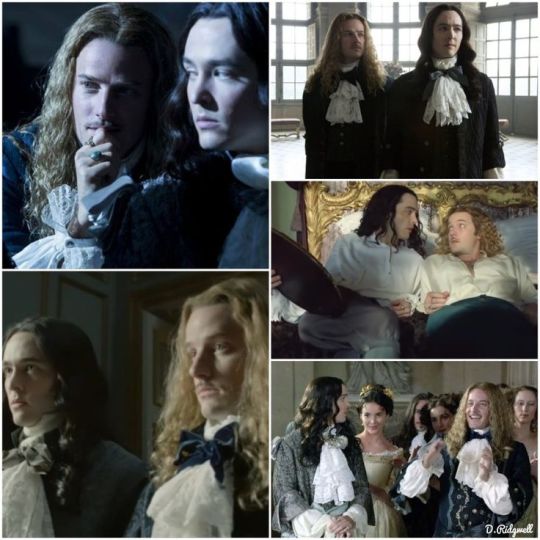
The Chevalier de Lorraine is a tall, muscular blond man and the Duke is dark-haired. They are very different especially in personality and attitude.
Monsieur le Duc Philippe d'Orléans is a prince who likes to dress up as a woman, even if it only happens a few times in the television series. He is supposed to have been raised as a girl by his mother in order to make him weak and submissive. Indeed, he spent his time devoting himself to fashion and frivolities. What is good in the Versailles series is that the complexity of Philippe d'Orléans is shown. Indeed, he was certainly effeminate and frivolous, spending a lot of time dancing and sleeping with his lovers, but he was also a great patron, and above all a valiant warrior who won several battles to the point of overshadowing his brother the King. In the series Versailles, what makes him complex and interesting is his relationship with his brother, but let's come back to his relationship with the Chevalier de Lorraine.
Both are very close to each other, but it is especially the Knight who is jealous. He's not married so he doesn't like seeing the Duke spending time with his wives. He is very protective of his lover, and plots to make him king. Monsieur le Duc Philippe was indeed more popular than the King because he spent more time in Paris than in Versailles.
The Chevalier is an exuberant man, who likes to show off and displays his superiority. He is manipulative and arrogant, but he hides a desire to be loved for who he is. So, what makes the beauty of this couple is that they are really made for each other. Time and politics sometimes keep them apart (and the sometimes cheat on each other), but they end up finding each other because they love each other.
In historical reality, some historians believe that the Duke of Orleans was sincerely in love with the Chevalier de Lorraine, but that he was not in love and used him to obtain favors. Yet he was a warrior whom the king used to manipulate his own brother. In the series, Duke Philippe evolves, because he is first dominated and manipulated by the Knight, and he ends up no longer depending on his lover.

What is good is that it is a couple that could have existed today. They are gay but they sometimes sleep with women, they are ambitious and lead a career on their own but sometimes helping each other. They argue, sleep with other people, but get together.
The couple formed by the Duke of Orleans and the Chevalier of Lorraine marked the history of homosexuality because they are among the rare nobles to have been able to display their sexuality without being punished by the law or the gaze of society. At the French court, you had to be noble to be able to have a free sexuality, despite the weight of the Church.
The real Chevalier of Lorraine was also much more cruel than his fictional counterpart: he would have murdered a young waffle merchant who would have refused to sleep with him. Later, he created a brotherhood of homosexual nobles whose emblem was a man crushing a woman. The Knight and the other lovers of the Duke of Orleans raped a young gay nobleman, the Duke of Vermandois (son of Louis XIV and his mistress Louise de La Vallière). In short, life at Court was undoubtedly cruel.
The Chevalier de Lorraine was therefore reputed to be a magnificently handsome man who was ready to do anything to get money and titles. In the series, he is endearing despite his arrogance, and is one of the funniest characters (he makes lots of jokes).
The Duke of Orléans and the Chevalier de Lorraine share the same first name, but they really understand each other, have common desires. They are both handsome young men and are attracted to each other's bodies, besides having many very exciting and explicit sex scenes. It would seem that the Duke was a bottom with the Chevalier but sometimes a top with his other lovers.
At the end of his life, the Chevalier retained the favor of the Duke of Orléans by providing him with handsome young men to sleep with. However, they were in a relationship for a long time (about forty years), and the television series show that they were happy together. They kiss in almost every episode (when they're a couple, not when they're supposed to be arguing).

They kiss in almost every episode (when they're a couple, not when they're supposed to be arguing). I also link you to a YouTube channel which has compiled the moments when the MonChevy couple appears (nickname which is a contraction of Monsieur and Chevalier, the titles of the two Philippes).
They both like fashion and wears amazing costumes, even if the Duke likes fashion less in the TV series that in the historical reality.
There are several absolutely sublime scenes in this couple. The first that comes to mind is the one where the Duke and the Knight watch the fire in the fireplace after an argument and the Knight cries when he says he would rather die than be hated by the man he likes. I had found it very beautiful to see this man so confident and dominating, who protects his lover and is jealous as soon as he is with another, thus entrusting his feelings with sincerity.
In another scene, the couple are at the Château de Saint-Cloud, residence of the Duke, and the Chevalier de Lorraine says to Philippe d'Orléans: "Your brother may be the Sun, but you, my dear, you are a star. And if the sun shines by day, the star lights up the night with its brilliance."
This sentence is magnificent because we feel the admiration that the Knight feels for his lover, who is superior to him in title. However, Philippe likes to obey his own lover, as if he were his wife. I find it very funny and exciting.
And then, of course, there's the scene where they say "I love you" to each other for the first time. Usually, I don't like too much when we do too much around the declaration of love, but here I found it beautiful because they know that they love each other, and they are so aware of it that they have never had to tell each other, until this famous moment which is too beautiful.
Monsieur and Chevalier never say that they are gay or homosexual (these words didn't existed at the 17th century) : they are just men, just normal people login other men.
Finally, to conclude, the interpreters of MonChevy, Alexander Vlahos and Evan Williams, are excellent actors.

They are as beautiful in real life as they are in the series. They have become best friends in real life, seeing them as complicit is so cute. They are also proud to have played a gay couple (because they are straight in real life) and to have done so in a natural way. Indeed, they have a real chemistry, especially during sexual scenes or kisses. I hope they will continue their career.
There you go, I hope you enjoyed discovering this couple. If you know him, let me know and I hope we can discuss it in the comments.
See you soon for future gay couples 😘
☀️👑☀️👑☀️👑☀️👑☀️👑☀️👑☀️👑☀️👑
++++++++++++++++++++++++++++++++++
LINK OF THE YOUTUBE CHANNEL with MonChevy gay storyline in videos (season 1)
LIEN DE LA CHAÎNE YOUTUBE avec l'histoire de MonChevy en vidéos (saison 1)
youtube
@monchevy-versailles @monchevy-rainbow-over-versailles @monchevybabies @monchevylove @versailles-gifs @chevalier-de-lorraine @philippedorleansversailles @gayhopefullove @awesomecrowdcontrol1 @gaycharaoftheday @periodfilmsanddrama @perioddramaedits @perioddrama @rainykpoptravelcreator @gaycouple4u @loveisloveok @love-for-boys @torinya @emerldarchr @alexandervlahossource @alexandervlahosfr-blog
#Couple gay du jour#Personal post#Post personnel#Gay history#History#Histoire#Chevalier de Lorraine#Duc d'Orléans#Roi#King#French history#Histoire de France#Gay couple#Couple gay#TV series#Versailles#Série télévisée#Personnage historique#Personnage fictif#Fictional character#Review#Historical figure#Recommendation#Monchevy#Celebrity#Célébrité#Actor#Evan Williams#Alexander Vlahos#Gay couple of the day
19 notes
·
View notes
Text

Louis, Anne, Philippe, Mazarin, Beaufort, and most importantly, Pistache
#dumas#vingt ans après#twenty years after#the three musketeers#les trois mousquetaires#louis xiv#anne d'autriche#philippe d'orléans#jules mazarin#francois de bourbon-vendôme#duc de beaufort#17th century#historical clothing
2K notes
·
View notes
Text
a monchevy spin-off would be interesting ngl but i think it wouldn't realistically work? personally id prefer a spin-off after season three since monchevy would be at their most healthy then. they worked through so much to get to where they ended.
but i don't think that would work without the rest of the characters, especially louis. one of the main storylines in the show, and one of main parts of phillipe's storylines, was coming to terms with the fact his place was now at versailles and by louis' side. phillipe was well aware that his life wasn't his own but instead tied to the court, louis and the politics. phillipe finally accepted this fate in the last season and reconciled with louis - which also means he likely would be back as an advisor amongst the ministers. so it seems quite hard to imagine a monchevy spin-off without any of the other characters.
that being said of course there could be a spin-off from before louis decided to build the palace. i think it would be interesting to see monchevy's life before they moved to versailles, but at the same time I don't doubt their relationship would just replicate monchevy in s1-s2 (where they were at their most unhealthy stage).
idk, it's really interesting to think about as a monchevy spin-off is probably the most requested thing in the fandom. but i do struggle in seeing how this would work without louis or the other characters? but i get it, it's not an historically accurate show so the writers can basically do anything.
#versailles#versailles show#versailles series#versailles tv#monchevy#louis xiv#phillipe duc orleans#phillipe d'orléans#chevalier#chevalier de lorraine#alex vlahos#alexander vlahos#evan williams#george blagden
22 notes
·
View notes
Text
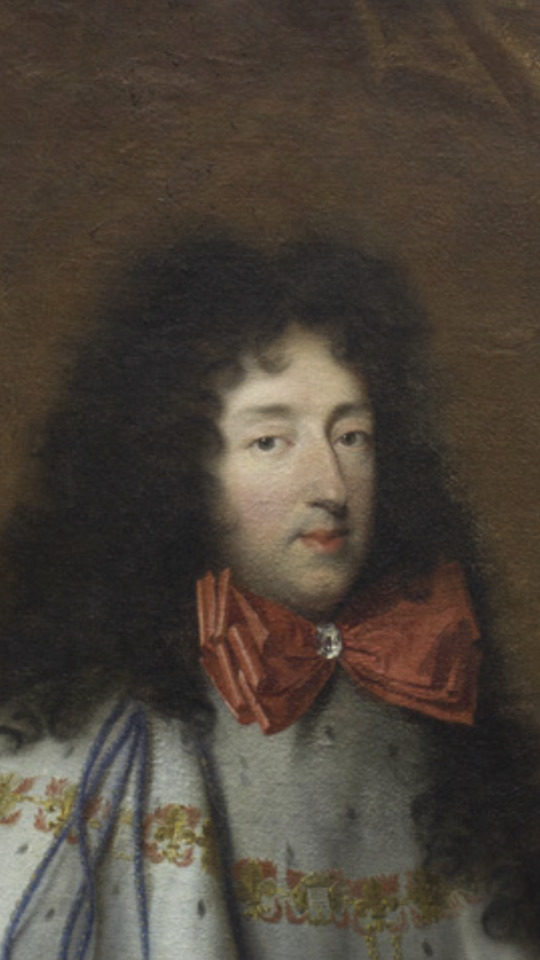

obsessed with how much Philippe looks like the og™️ Philippe, they really cast him perfectly
#versailles#philippe duc d'orléans#alexander vlahos#have i mentioned i'm in love w his hair#both historical and the show version if we're being honest here
39 notes
·
View notes
Text
Anne of Austria and Mazarin: a more nuanced reading.
The question of the queen mother’s relationship with Mazarin has been the stuff of historical speculation since the mazarinades first spread notions of illicit sexual relations, secret marriage, and the cardinal’s ‘bewitching’ of the queen. Since then, slightly more decorous historical discussion has sought to establish the nature of the relationship, with the obvious underlying question of how emotionally dependent Anne was on Mazarin. Much of this relies on reading meanings into letters from Mazarin to Anne whose tone and expression could encompass the possibilities of frustrated physical passion, heightened seventeenth-century notions of sentiment and friendship, calculated emotional manipulation, and a great deal in between these three. The relevant question in this context is whether the queen mother could contemplate abandoning Mazarin and leaving him in permanent exile, either because the emotional ties were less strong than Mazarin wished to believe, or because Anne calculated, on behalf of her son, that the political price —or political risk— of restoring the cardinal was too high. Here the only real source, given the queen’s own silence, are the memoirs of contemporaries around her at court, and opinions in these are divided. If some of these writers assert that Anne would never abandon Mazarin, others were quite prepared to argue that the queen’s affections were conditional and perceptibly diminishing as Mazarin’s absence continued. A third group did not doubt Anne’s affection for the cardinal, but were more sceptical of her resolution and commitment to him in the face of persuasion and contrary arguments advanced by those in her entourage and in the council.
Some of the shrewdest commentary can be found in the memoirs of Marie d’Orléans, duchesse de Nemours, who was not an intimate of Anne like Mme de Motteville, but no enemy of the queen either. Nemours’ memoirs assert that commentators had been so obsessed with the notion that the queen was entirely controlled by Mazarin that they had failed to note just how little correspondence there was between the two of them, and the amount of mutual misunderstanding that grew up during Mazarin’s exile. The queen mother, she argued, had little taste for the work of government and little confidence that she could handle it well; despite this, Nemours adds, she had a good sense of political judgement based on scepticism about the motives of everyone. So it suited the queen to allow Mazarin to take responsibility for government, but when he was not present she was prepared to take the advice of others around her, even when this cut across the actions and policies that she had previously agreed with the cardinal. This interpretation of the queen’s motivation was not good news for Mazarin’s aim to shape Anne’s actions on the basis of his intermittent correspondence. And it was echoed by two of Mazarin’s strongest advocates at court: his nephew by marriage, the duc de Mercoeur, and his military ally, the maréchal du Plessis-Praslin. Both stressed that the queen was, in Mercoeur’s words, ‘susceptible to being pressured’ by those ministers and courtiers with whom she was more immediately in contact.
These pessimistic judgements were not fully accepted by Mazarin, but he was certainly concerned that Anne might get used to managing affairs of state without him. It was not possible to insulate the queen mother from those around her, and many of them were either his undeclared enemies or those who believed that Mazarin’s return would complicate an already precarious political situation. His response, as we have seen, was to keep his return as the unremitting focus of all his letters, while simultaneously expecting his allies and appointees in the council and at court to maintain the pressure on the queen by stressing the miseries of his exile and the benefits that would be brought by his presence.
All of this took its toll: Mazarin was prepared to confront the queen directly about the extent of her commitment to him, and his replies suggest that he received some written reassurances from Anne in return. But he was no less aware that even the most detailed and painstakingly written account of the political situation and the role she should play was less immediately influential than direct conversation with the queen. Unless he could count on those around Anne to remain ‘on message’, his letters could easily be forgotten; and many of these courtiers saw Mazarin’s stock as having fallen to the point where his concerns could be ignored with impunity. An additional hazard in trying to build up a group of cheerleaders around the queen came from Anne’s suspicions that Mazarin’s letters to others in the court circle may have offered different perspectives and information from those sent to her personally. The duc de Mercoeur explained in a letter to Mazarin that the queen insisted that all those at the court who received letters from Mazarin should read them out to her in her apartments. Mercoeur recognized that this had the potential to embarrass Mazarin, if not worse, and suggested that the cardinal should send information that he did not want disclosed to the queen in separate, additional notes that could be kept apart from the letter for public consumption.
David Parrott - 1652: The Cardinal, the Prince, and the Crisis of the Fronde
#xvii#david parrott#1652: the cardinal the prince and the crisis of the fronde#cardinal mazarin#anne d'autriche#marie d'orléans#madame de motteville#duc de mercoeur#maréchal du plessis-praslin
3 notes
·
View notes
Note
Despite considering myself to be rather knowleadgeable about Marie Antoinette and her various endeavours and portrayals in media, I have to admit that i never heard of the Musical. Would you enlighten me about it and maybe advise where to watch it? 😁😁😁
Of course!
So, Marie Antoinette das Musical.
Based on a book by Shusaku Endom, premiered in Japan in 2006, as a collaboration between Michael Kunze and Szilvester Levay, known for Elisabeth das Musical, Mozart das Musical, and Rebecca das Musical, and went on to premiere in Germany in 2009. Both productions didn't do particularly well, even though they did have cast albums released. (I...still have to translate the German libretto, if only for the sake of keeping up my German skills.) There were some major structural flaws -- Marie Antoinette was too bitchy (throwing an actual temper tantrum, like a child, so that Louis would dismiss Necker; tossing champagne at a poor woman's head because she interrupted her ball and Marie thought it would be funny), her sympathetic qualities were either downplayed or erased in favor of her love affair with Fersen, which was reduced to "Good Man In Love With Bitchy Woman Who Knows She Isn't Good Enough For Him, But Don't Worry, He Loves Her Anyway", but the justifiable reasons for the Revolution were reduced to "Bitter poor people want Revenge and Go Against God", it had a bloated plot with too many characters, etc. etc. etc. It was, and I'm saying this as someone who ADORES messy musicals, one of the single biggest disasters I've ever forced myself to sit through, in the sense that it wasn't even particularly *entertaining.*
But, in 2014, an international crew got together to do the Korean production, and they essentially rewrote the whole thing. Not a shallow rewrite either, they TOTALLY REWROTE IT FROM THE GROUND UP. Songs were cut and added as needed, sometimes being given to different characters or put in different scenes, superfluous characters were removed, the plot was tightened to focus on the characters involved, Marie was rewritten into a flawed, but understandable character, not a sexist caricature. This was the version of the plot that would premiere in Hungary in 2016 and back to Japan in 2018 and 2021, becoming an international success.
The musical follows two women -- Marie Antoinette and Margrid Arnaud, two women with the same initials who lead very different lives. While Marie lives a life of oblivious privilege, Margrid lives on the streets. She was educated in a convent as a child, as the result of a mysterious benefactor (her mother having committed suicide) but was tossed out on the streets when the money ran out, and she's had to live by her wits since then. The two of them meet when Margrid interrupts a ball being held at Palais Royal to celebrate Marie's return to society. Margrid calls for the aristocrats to pay attention to the plight of the poor, who are starving, but all Marie can do is offer her a glass of champagne, which Margrid, furious at the lack of understanding, tosses in her face, swearing revenge. She joins up with the Duc d'Orléans, who is running a smear campaign in order to convince the public that he should be the rightful king, and things go downhill from there...
Some of the strongest points in the musical's favor:

Strong female characters. A term that's often thrown around casually, but, honestly, I love the musical for how it deals with the rivalry between Margrid and Marie, because neither one is fully wrong or fully right. We understand why both of them make the decisions they do and how it leads them to where they are by the end, and they go through an entire arc together. Margrid in particular is one of my characters of all time for being a woman who is brilliant, an absolute gremlin, strikingly vulnerable, and evasive. She's flawed, she's aggressive, vindictive, and spiteful, but we're also allowed to see WHY she's that way and how thoroughly fucked up she is by what's happened to her in the past. She is someone who truly doesn't believe that she's capable of being loved or of loving someone else -- platonically or romantically, because every experience she's had of love ended in betrayal, even when she desperately wants it. Meanwhile, Marie is both trapped in a life of fame and fortune while also believing, firmly, that that is her god-given right. She never believes that her position is anything other than her right by God, even when it involves spilling French military secrets to the other European powers when the Revolution goes a little crazy. She adores her family, she adores her husband, but she's also in love with Fersen (which...I don't like historical Fersen, but musical!Fersen, I tolerate.) You feel sympathetic for her by the end, but she doesn't demand sympathy.
Great villain. I love the Duc d'Orléans in this musical so much. Louis Philippe Joseph was a complicated man historically, and, depending on the actor, he's a complicated man in the musical. He's been simplified, but you can still SEE at times that he isn't a monster -- he genuinely ENJOYS working with Margrid, he's a good boss, he isn't necessarily WRONG about certain things, even when he's selfish in the way he goes about it (there's a great moment in the 2018 Japanese production where he sees Marie reject a peace offering from Cardinal de Rohan, and you can just SEE him dying inside, like "oh, God, she actually DID that." Margrid's eventual break with him isn't even that he betrayed HER or that HE changed his goals...she did. Which makes for a much more interesting dynamic than "evil man manipulates woman and then betrays her."

There's also a masquerade scene where they go undercover together. And yes, I went batshit over this and have still not recovered. (Please note that they are being used to contrast Fersen/Marie here, to make the ship bait worse.)

They're just. Like this. With one another. In one of the Korean productions, you can clearly hear her call him "Philippe" which murdered me.
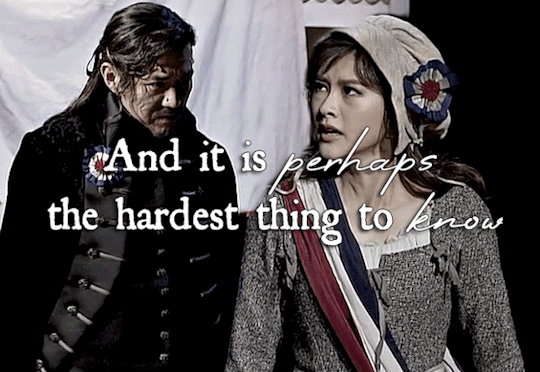
I don't have any gifs of this scene without text on it, but the look on both of their faces by the end is...
Anyway, semi-canonical (depending on the production/actors) villainfucking angst, who is doing it like them?
The costumes are great (with the exception of the Hungarian, sorry Hungary.)
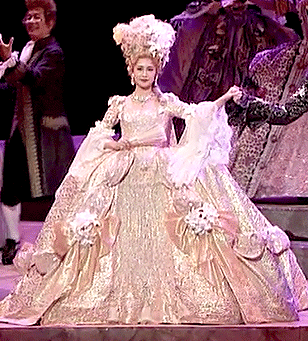
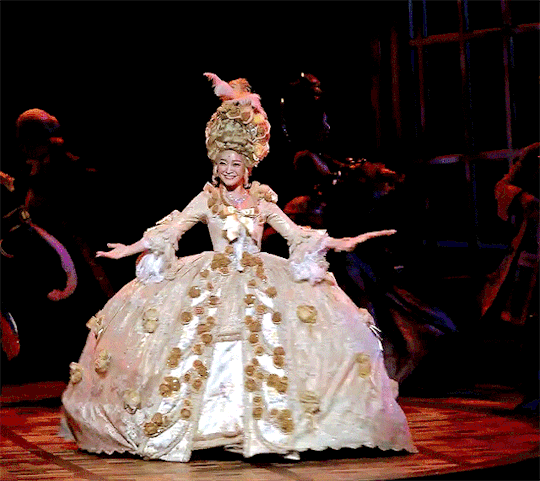
(The same dress from the same scene in both Japan and Korea)
It is bizarrely accurate in some ridiculously minute ways, like the Toho production actually DOING A RECREATION OF THE HISTORICAL MARIE'S BED.
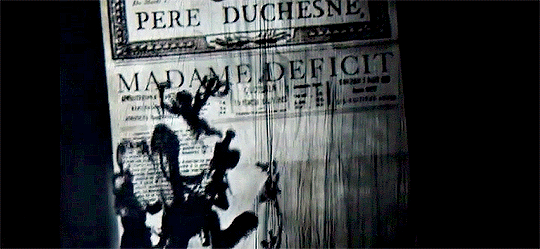
Historically accurate pamphlet, shown in a projection while Orléans is singing about his strategy to turn the people against her. I legitimately had to pause the screen the first time I saw it because I couldn't believe my eyes. (Yes, I now pause it on each stream.)
Like, don't get me wrong, it still gets a LOT wrong, or changes details around to make 9 years of someone's life fit into a two hour musical, but both the Korean and the Japanese productions DO care about details in ways that higher budget films and TV series often don't.
And, of course, some killer songs. (Orléans' villain song, Marie's song, Act 1 finale -- all from the Korean, since they are slightly better at putting songs out, with the Japanese trailer.)
The Korean and Japanese bootleg environments tend to be...stricter than Broadway -- there have been proshots released for both at various times (the Toho production is actually available to buy if you have a Japanese proxy who can send it to you), to the point where I can't *say* if I have access to the Korean, but I have bought both DVDs of the two Japanese casts and have been known to stream it. If you're interested, I'm always willing to schedule something, especially since it's been ages since I've done anything like it.
6 notes
·
View notes
Text
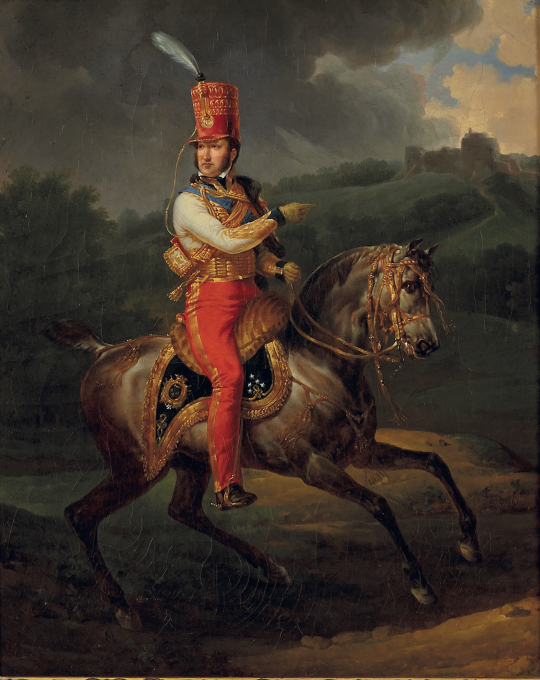
Equestrian portrait of Louis-Philippe I (1773-1850). By Horace Vernet.
#equestrian portrait#royaume de france#horace vernet#maison d'orléans#bourbon orleans#louis philippe i#duc d'orléans#roi de france#vive le roi
9 notes
·
View notes
Text
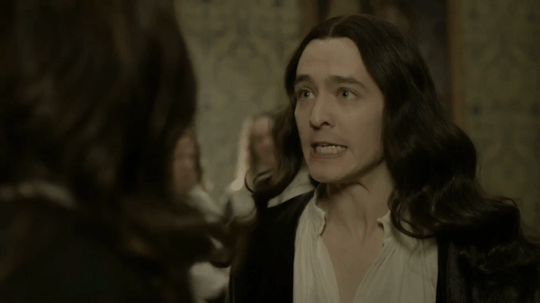
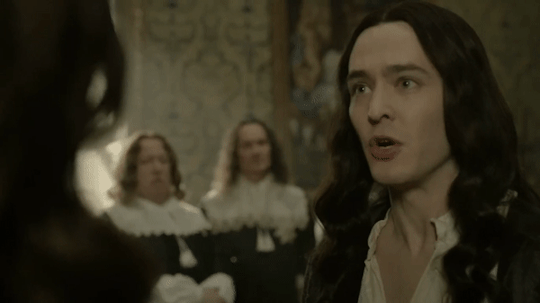
#versailles#versailles gif#philippe d'orléans#philippe d'orléans gif#monsieur#alexander vlahos#alexander vlahos gif#philippe of orleans#philippe of orleans gif#duc d'orléans#duke of orleans
30 notes
·
View notes
Note
Hi, how are you doing?? Hope you're alright wherever you are!
So, I was making some research about the marquis and I had 2 questions that poped up to my mind which I couldn't find the answear for online:
1. How many stories do we have Lafayette as a child still living at the Chavaniac. I've heard of the one where he once went looking for the beast of gévaudan, but if he had the guts to go after it so young, that mustn't be the only thing he did;
and 2. I've acidently came across three quotes from the book "The Woman of the Chatêau Lafayette" and, while they sound amazing, I doubt it's veracity, for as the saying goes "if something sounds too good to be true, the it probably isn't."
This first quote, Adrienne was supposed to be hosting a bishop or something but she refused to go, and feeling bad that she might've disapointed her husband, she went to try to apologize bur heard Lafayette saying
"Sir," Lafayette began, "I do not share my wife’s religious beliefs, but if you knew my marriage, you would realize that she is not my subject , nor would I wish her to be. She is a woman of high-minded principle and the model of kindness; of a character we would all do well to emulate. I would no more crush my wife’s spirit than I would persecute any other citizen for matters of conscience. And I promise that if you try to crush her spirit, you will find me in your way, sword in hand."
this other one isn't much of a quote but, more like a moment, it is during the beggining of the french revolution, and he and the duc d'Orlean if I remember correctly are discussing, and Lafayette threatens him (?) to leave to Englad and to not be back.
The third one is, at the National Assembly, he says some controversial stuff and, to punish him, they took off some titles from his name, and he signed his name on the last record of the session without any noble title or military rank at all, just Lafayette.
Again, I have no idea if any of this us true, and I'm sorry for basically just using you to fact check some stuff since my searching habilities are basically zero lol, but thank you very much =))
p.s. here talking about the frev, how the americans viewed lafayette's role in it? and how did his friends did?
Hello Anon,
that are a lot of questions, so let us try to tackle them one by one, shall we? ;-)
1. Childhood Stories
No, sadly I do not know a lot of childhood stories. La Fayette did not reference his childhood often in his own writings and this time in his life appears to not have been remarkable. He was a young Marquis from a mediocre family at the time. His wealth was also greatly limited at that time because he inherited most of his money from his maternal-grandfather and he was still alive at that point in time. The Auvergne was far away from the bustling cities like Paris or the court in Versailles. La Fayette grew up in the countryside with his grandmother (a very remarkable women in her own right), his two aunts and a cousin. His childhood was by all accounts a very happy one, but a mostly uneventful one - or the stories were not preserved. The earliest stories I know about start when La Fayette entered the schools of Paris at around twelve years of age.
2. The Bishop of Paris
This incident as depicted in the book (Stepahnie Dray, The Women of Chateau Lafayette, Penguin LCC US, New York, 2021, p. 320-321.) is for the most part factual and happened that way. A little bit of background for everybody who has not read the book and/or is not familiar with this aspect of revolutionary France: the clergy was ordered to swear the oath of the Civil Constitution of the Clergy (January 3, 1791) - some clergymen took the oath, some refused and some even fled the country. Adrienne was absolutely against the idea that a priest should swear this civic oath - and she was quite open about this. The Archbishop of Paris, Antoine-Elénore-Léon Le Clerc de Juigné, who had sworn the civic oath as well, left France in 1790 because he became alarmed by the turn the Revolution had taken. In his place Jean-Baptiste-Joseph-Gobel became Archbishop of Paris. Now, Gobel was never recognized by the pope, he was described by some of his contemporaries as an atheist and he was opposed to some of the pillars of the roman-catholic believe - in short, he was no one with whom devout Adrienne would ever get along. Here is what Adrienne’s daughter Virginie wrote in her book:
My father often received constitutional clergymen at dinner. On those occasions, my mother would express before them her attachment to the cause of the former bishops. She would discuss her opinion with those whose personal character she esteemed, and in these conversations she manifested such enlightened views, gave proofs of so much sincerity, and was, at the same time, so careful of offending, that no one could be wounded by the expression of her feelings. Independently of their conduct or opinions, all were received by her according to my father’s wishes, without her own consideration being diminished, because she preserved on every subject the liberty of expressing her way of thinking. Once only did she depart from the rule she had laid down for herself, that of receiving all sorts of persons equally well; it was the day when the bishop of Paris, after his instalment, came to dine at my father’s. He did not, like his colleagues, come as a private individual and she declined receiving him as bishop of the diocese. Accordingly, she dined out that day, although her doing so was much remarked.
I purposefully included a longer passage, to give you an understanding of the general scene at the time. We see that the events, the dinner, Adrienne being absent, happened just as described in the book. Do we know if La Fayette and Gobel had a conversation? No. But given the general stir that Adrienne’s absent caused, we can be quite sure that a conversation of some sort took place. You can say a lot about La Fayette as a husband but in his very own way he was very loyal to Adrienne and he would have never chosen Gobel over her (since he also did not appear to be terrible pleased with Gobel himself.) Where either he or Gobel that direct and harsh in their wording? We do not know, maybe not. I am certain though that La Fayette defended Adrienne’s actions in front of Gobel or anybody else.
3. The Duc d’Orléons
La Fayette and Louis Philippe II, Duke of Orléans had a disastrous relationship on good days and an even worse one on bad days. (What is somewhat ironic since he basically made d’Orléans son king - but the relationship between La Fayette and Phillipe I soured soon as well. Like father like son. :-)) Here is the quote from the book you were referring to (at least I hope I’ve got the right one :-.)
Philippe lifted his chin. “What do you want, General Redhead?”
“To warn that Paris is no longer safe for you.”
Philippe laughed. “I am safer in Paris than you.”
More than fifteen years of enmity between the two men had finally brought them to this reckoning, and I saw murder in my husband’s eyes. “Understand, sir, that you are not safe anywhere I am.”
Philippe stopped laughing. “You are threatening me.”
Lafayette’s expression was cold, like frigid mountain air. “My wife tells me you have friends in England. Visit them.”
Philippe was not accustomed to taking orders. “Or what?”
In answer, Lafayette put his hand upon the pommel of his sword. The one carved with his great deeds in America. And I realized there might very well be bloodshed in my parlor. Philippe must have realized it too. He glanced at me, but I kept my eyes hard.
For once in his life, Philippe gauged us properly. “I will apply for a passport.”
My husband nodded. “It will be granted.”
Stepahnie Dray, The Women of Chateau Lafayette, Penguin LCC US, New York, 2021, p. 292-293.
Now, I do not know of any such particular stand-off between the two of them, but there really was no love left. Was La Fayette that direct in his manners with d’Orléans? I personally doubt it and would think he had himself more under control (he certainly would not have murdered d’Orléans and even less so in his own parlour with his wife present and his children maybe upstairs) but La Fayette, when under pressure, could also sometimes be very rash. Just like with the last question; the general scenario is correct but we will never know the exact details.
4. La Fayette and his titles
Sooo, I think and hope that your last quote was in reference to this scene from the book:
So Gilbert set aside his poultices. He caught his breath. He returned to Versailles. And there, he rose in the assembly to rain down thunder. He protested corruption and wasteful spending. He supported reforms in the judicial system to prevent torture and unjust convictions. And perhaps most controversial of all, he argued for a motion to grant civil rights to Protestants and Jews.
Gilbert rose again and again, like a colossus.
To punish him, the royals divested him of his rank as field marshal. And in response, he defiantly signed his name on the last record of the session without any noble title or military rank at all.
Lafayette.
The name we shared.
A name that would, henceforth, speak for itself.
Stepahnie Dray, The Women of Chateau Lafayette, Penguin LCC US, New York, 2021, p. 248.
While La Fayette knew and was friends with many like-minded nobles (they even called themselves the “Fayettists”) and there were still members of the nobility who were way more progressive and sympathetic towards the Revolution than La Fayette was, his relationship with the royals was often taunt and marked by mutual mistrust. The abolishing of titles was a notion introduced by a relative of La Fayette’s and he supported the idea wholeheartedly - what really makes me stumble is the passage where La Fayette was supposedly stripped of his rank as a field-marshal. I am not as firm with La Fayette’s military titles as I should be but I really do not know when that should have taken place. La Fayette entered the Revolution as a Maréchal de Camp and he was promoted to Lieutenant Général on June 30, 1791. This timeline intrigues me and will look that up and make a separate post about his ranks and how he got or lost them. Until then, please be patient with me. :-)
Maybe as a closing though - the name La Fayette did indeed came to speak for itself, without the need of military or noble titles.
You also asked about the perception different people had about La Fayette’s role during the French Revolution - since that is such a lengthy and complex topic on its own, I would like to make a separate and detailed post about that as well. I will put it on my list (and no worries, I take good care of my list. :-))
I hope that answered all your question thus far and I hope you have/had a lovely day!
#ask me anything#anon#marquis de lafayette#la fayette#french history#history#american history#french revolution#the women of chateau lafayette#stephanie dray#adrienne de lafayette#adrienne de noailles#virginie de lafayette#duc d'orléans#1791
11 notes
·
View notes
Text

January 7, 2024: Welcome to 2024!
Okay, I have been writing (and there is a LOT). However, I've had to deal with bedbugs for the past six months (and going). I have no time to go into the logistics (and the blame sits squarely on the shoulders of my stepsister), but I'm here to have some fun and tell you about what is going on with the HOB.
Without too much detail of the private conflicts that plagued this project since its creation upon the heels of the success of @tkwrtrilogy2, @tkwrtrilogy, and @tkwrtrilogy3, there has been an overhaul. Also, the latest addition to the trilogy will make its debut on Wattpad (but will come here eventually).
First, the OVERHAUL: Welcome to the HOB Universe.

You're asking yourself: WTF is this? Well, the best explanation of it can be seen here. All that applies is that this takes place in 17th-century France rather than Middle Earth.
I will be overhauling the Tumblr for @lesecretdelamaisondubourbon. There is a reason, but to find that out, you'll have to read the memoir about all of this (TBA). Either way, it comes on the heels of family drama and the death of a friendship that was supposed to last forever (according to her). But, the book (known by the title XIV) is going up on Wattpad, so while it is being overhauled over here, you can read it in its proper order over there.

XIV: The life and times of Louis XIV as told by Louis XIV--if you haven't figured that out yet. It is part of Book III; his father's story (@thesecretofthehouseofbourbonbook) is Book II.
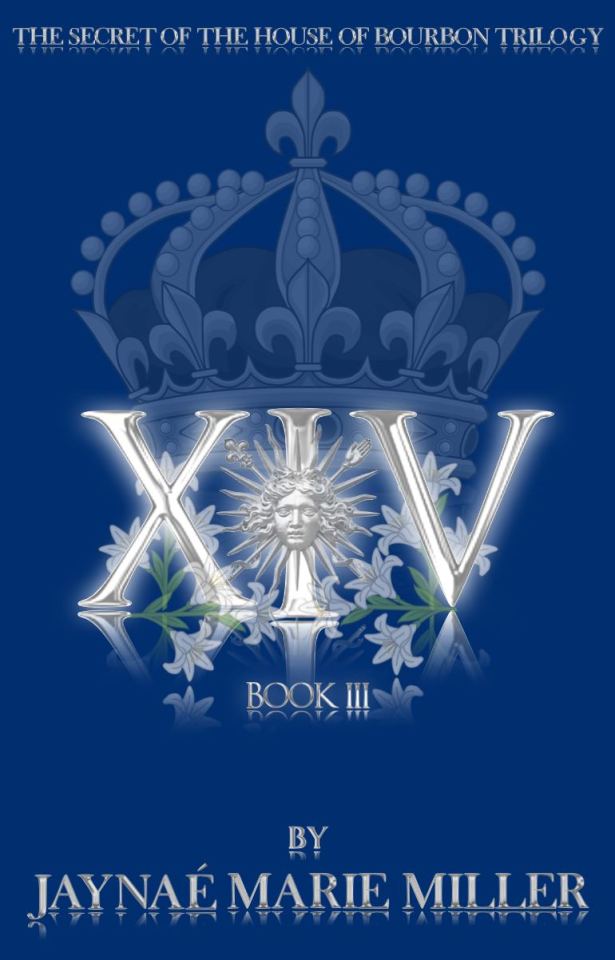
Now, about that other book: The original title of the book (that was going to be written by my former co-author) was Monsieur. If you guess that the book was going to be about Philippe I, Duc d'Orléans (younger brother of Louis XIV), you were right.
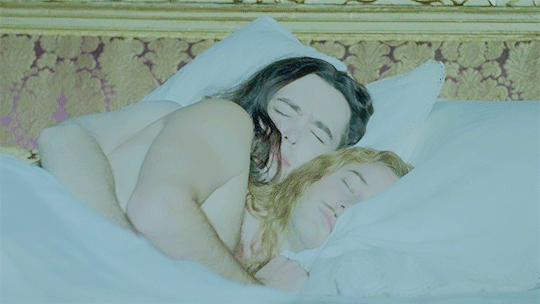
If you think this is a retelling of centuries of rumor and innuendo, you would be wrong. This will be his story--told by Philippe. Under the title of Son of France (Fils de France in French), this is the story you were never told. After 383 years, it is time.
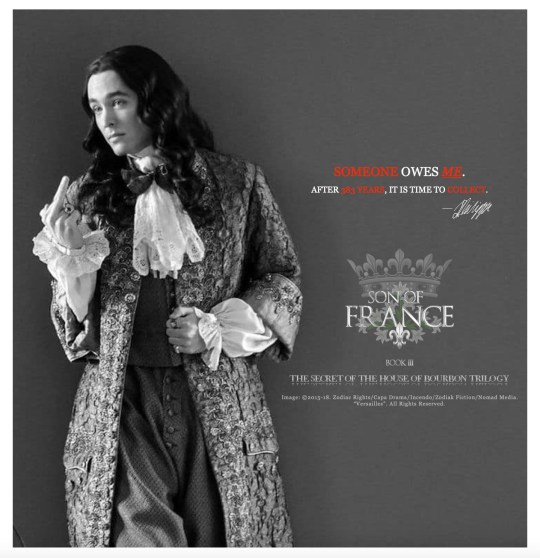
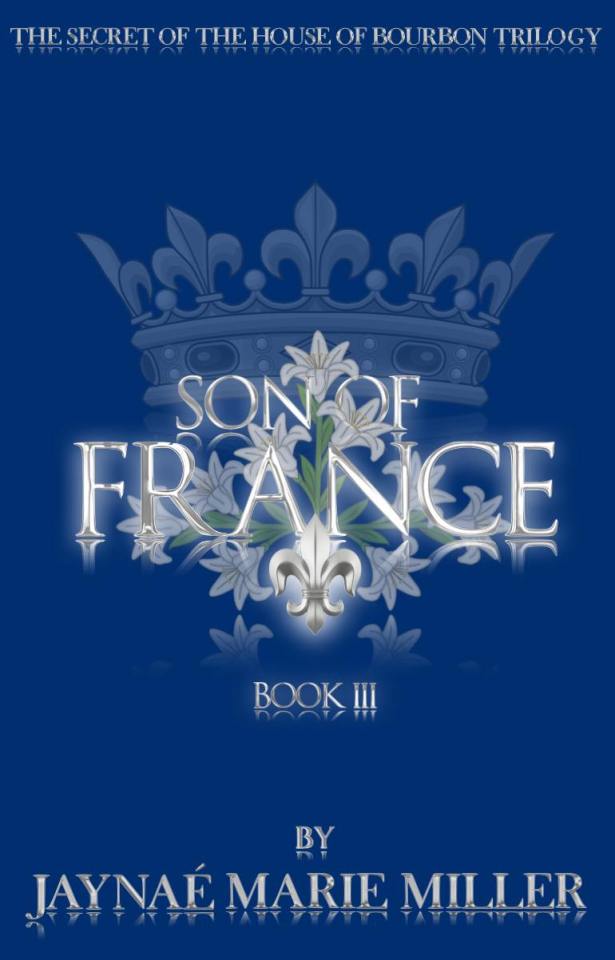
His story officially began in January of 2024, and he will be following his brother Louis here once he debuts on Wattpad. Stay tuned for more. He's part of the universe now.
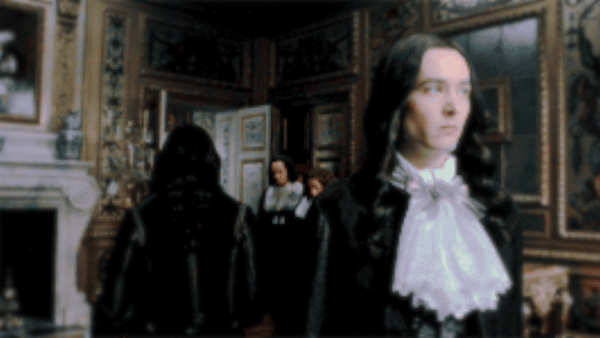
#historical drama#historical fiction#xiv#louis xiv#monsieur#philippe i#duc d'orleans#books#novels#wattpad#hobnewsfeed#the official hob#the official hob trilogy#hob literary universe#literature#writers on instagram#writers on twitter#writers on tumblr#writers on wattpad#writers on wordpress
7 notes
·
View notes
Text
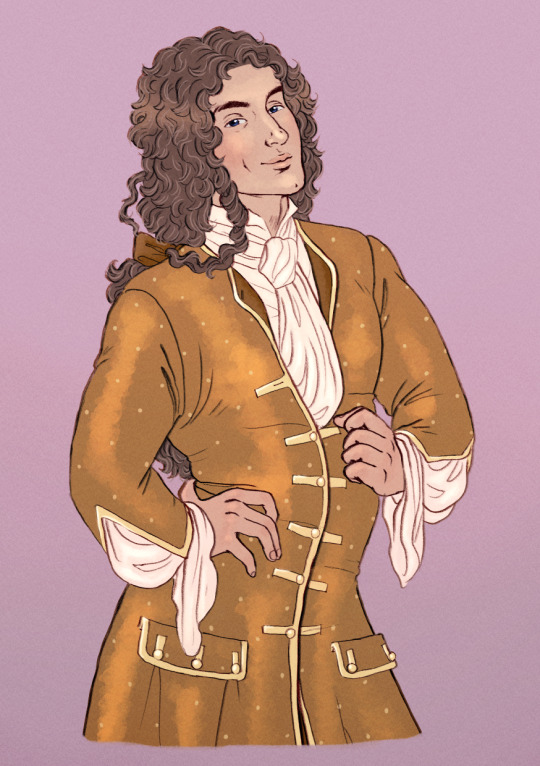
Philippe d'Orléans, Duc de Chartres
The Duc de Chartres is Gonzague’s other close friend, a royal connection the Prince made sure to acquire by any means possible. It turned out all it took was to be sufficiently entertaining to the King’s nephew.
Chartres is an easy friend to have, very little seem to bother him.
A libertine, he likes to indulge with parties and numerous lovers, making him infamous in court. In reality, this outrageous reputation hides a bright mind and lofty ambitions.
43 notes
·
View notes
Text
i really don't understand the fandom hatred of delphine. i remember constantly seeing people say she was manipulative to chev and only used him to benefit herself, but she literally ?? didn't.
the only times she asked him for help were not for herself but for other people (and she only asked once or twice).
she didn't love chevalier the way he loved her, which is fine! but reverted to his old self and used that against her when she asked him for help.
i agree she shouldn't have called him a coward and made him feel guilty for not wanting to commit forgery due to the hefty price he would pay if caught, but that entire scene was chev saying no because he's pissed off she doesn't share the same feelings as he does. and at the same time, again, she didn't ask for help for herself but for other nobles!
delphine was a brave woman who stood her ground when it came to her religious beliefs and her rights. it's one of the reasons chev admired her so much, and it was he who offered to help multiple times out of his own accord.
delphine also helped chev to mature and change simply by existing. chevalier literally became a better person because of her and risked his life for herself and for other people which he never would have done in the past.
i think the criticism is hypocritical because the same people who call delphine manipulative, when she isn't, are the same who don't say a word when it comes to phillipe's toxic traits and are fine with shipping him with chev? so it really just seems like they don't like delphine simply because she isn't phillipe.
#i was once of the opinion she was manipulative but i think that was mainly bc of group think bc delphine literally isnt ???#shes def in my top fave characters#and i really loved chev and delphines relationship#chev embraced his bisexuality and feel so deeply in love w her he became a better man#chevalier de lorraine#phillipe d'orléans#phillipe duc orleans#versailles#versailles show#versailles tv show#versailles series#delphine
12 notes
·
View notes
Text

"Commode" attribuée à Charles Cressent en bois satinés et amarantes, marbre et bronzes dorés (circa 1725) devant "Daphnis et Chloé : Les Vendanges" tapisserie de la Manufacture des Gobelins d'après Philippe, Duc d'Orléans en collaboration avec Antoine Coypel (circa 1718-20) présentées à l'exposition " La Régence à Paris (1715-1723) - L'Aube des Lumières" au Musée Carnavalet, novembre 2023.
5 notes
·
View notes